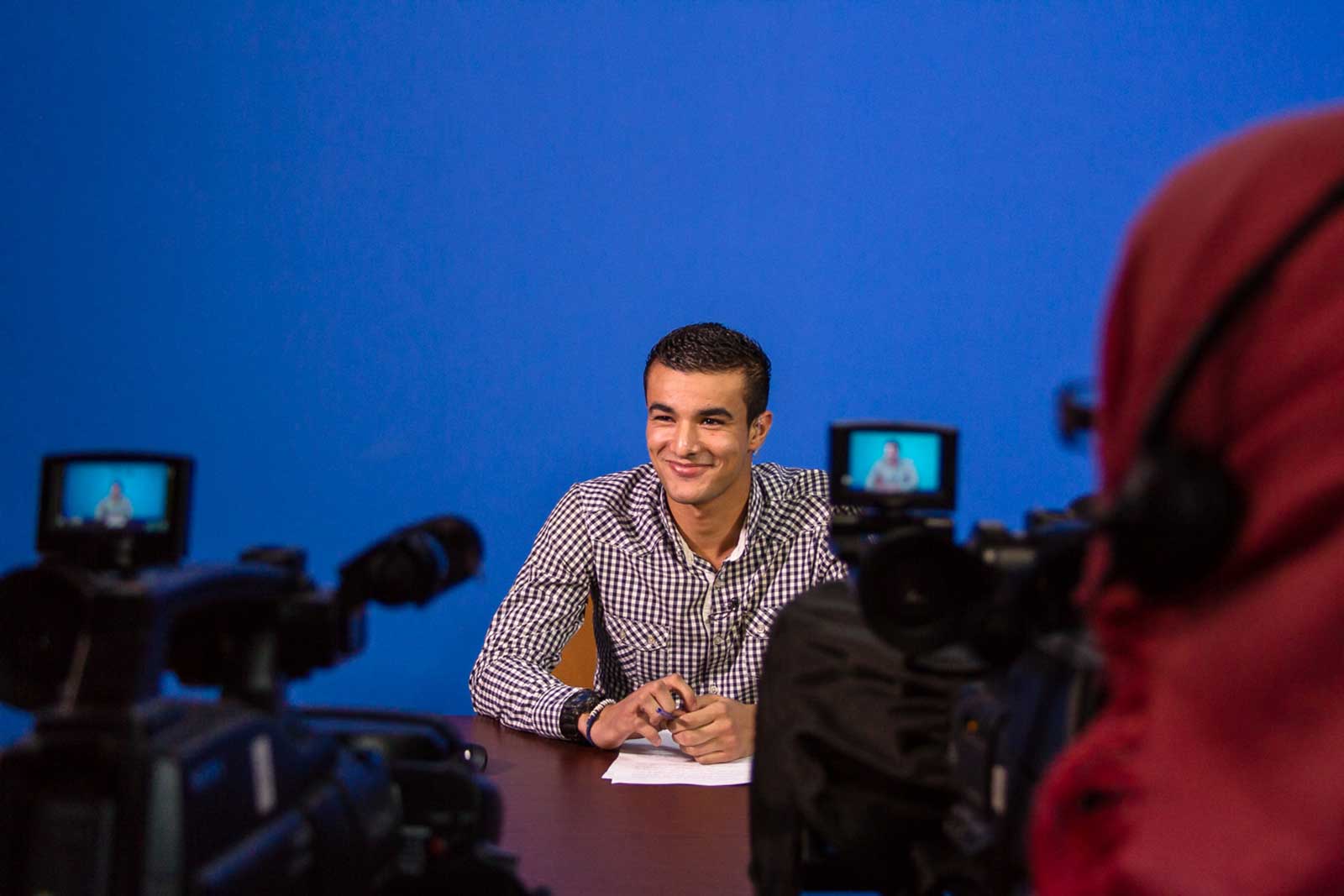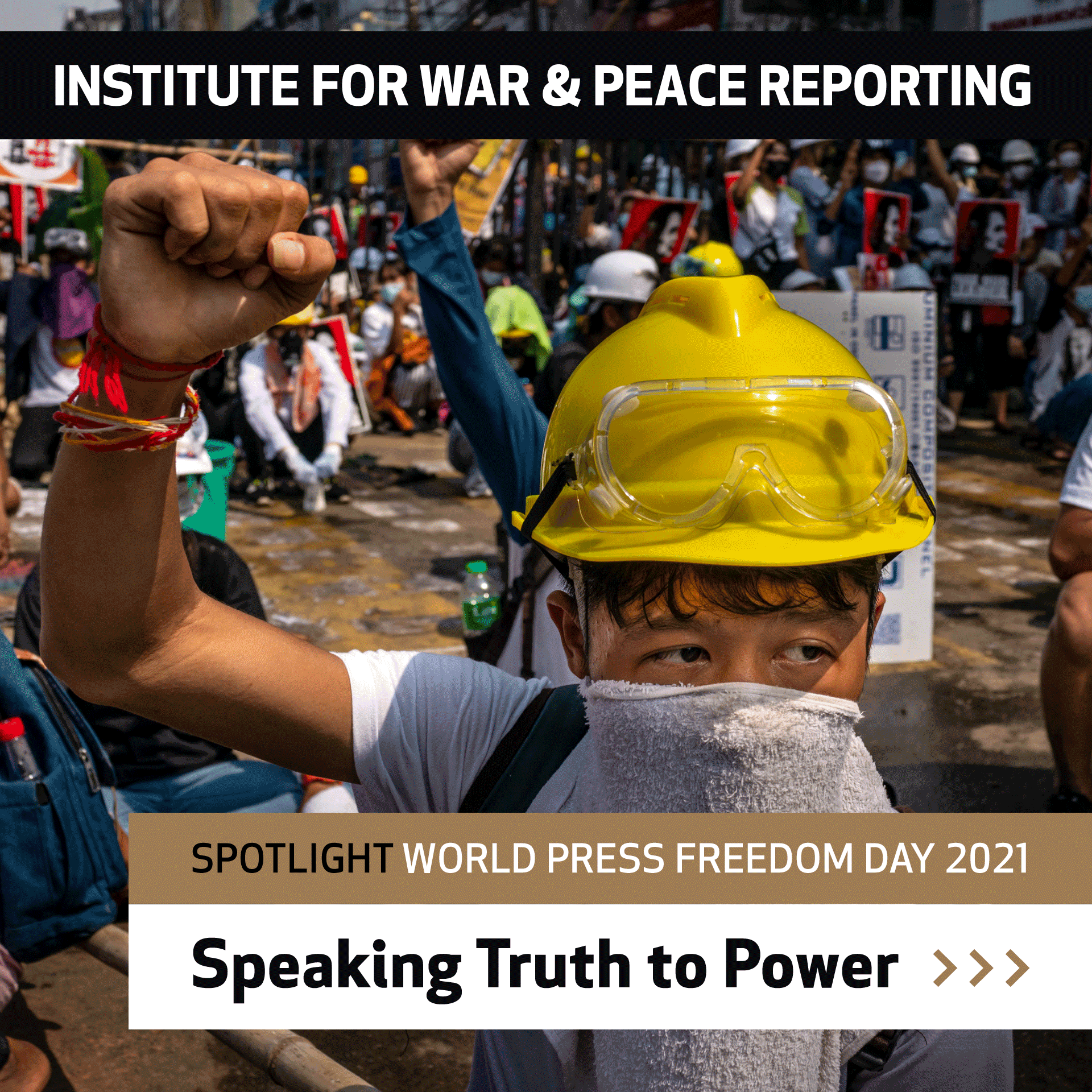Libya’s MediaLab Generation
Scheme has produced professionally trained journalists and developed public and private partnerships across the country.
Libya’s MediaLab Generation
Scheme has produced professionally trained journalists and developed public and private partnerships across the country.
IWPR’s flagship journalism training programme in Libya’s Tripoli university has gone on to become an integral part of the country’s invigorated media scene, with more than 4,000 students graduating from its unique hands-on curriculum.
MediaLab co-founder and former director Dr Khaled Gulam described its launch in March 2014 as “a turning point in the history of media and media training in Libya”.
Gulam, now executive director of the Libyan national broadcaster Al Wataniya, recalled how staff and students alike refused to be deterred by the fresh outbreak of violence that year that turned into another fully-fledged civil war.
“We were not going to give up,” he continued. “I have to admit, though, that the level of our success was way bigger than we had anticipated.”
Since its establishment in the early 1990s, the Tripoli University media department had focused solely on theory, lecture and classroom exercises. The MediaLab, the first “skills incubator” of its kind, was designed to fill this practical gap.
“A turning point in the history of media and media training in Libya.”
Dr Khaled Gulam, MediaLab co-founder and former director
It provided a modern learning environment with two fully functional TV and radio studios, with 15 workstations and more than a dozen cameras and recording devices. A group of Libyan media professionals and academics, with the support of the university, worked together to design the curriculum.
Even amid the fighting, the MediaLab programme was able to bring students from cities and towns across the country – including from areas experiencing active conflict – to Tripoli for student exchanges. Gulam recalled how a female student told him at the time that “the MediaLab was able to achieve what the politicians were not”.
The MediaLab was also able to organise internships and even help find jobs for several of its graduates in outlets in Libya and the region, as well as hosting students and faculty from six other higher learning institutes around the country, providing valuable knowledge for media studies programmes at those schools. It also went on to offer media training to more than 100 communications officers within the Libyan government administrations.
Gulam said that it had been particularly important that three-quarters of MediaLab students were women.

“We also developed a training programme that was specifically tailored to the needs of women journalists,” he continued. “During each of the sessions of the programs, we invited a Libyan woman role model in journalism or arts. In a culturally conservative country, such an opportunity to practice real journalism and challenge the fears and concerns established by social norms was an outstanding contribution and an unprecedented platform to promote women’s leadership and self-confidence.”
In 2019, the Coalition on Media and Education for Development Africa Forum (CAFOR) highlighted the MediaLab as an “innovation that successfully increased inclusion, quality and impact in education and training in an African country in crisis”.
The Tripoli MediaLab was established under a grant from the British Foreign and Commonwealth Office, with support provided later by the US. It subsequently received support from the Libyan ministry of culture as well as fundraising and donations by students and faculty for new equipment.
“The MediaLab became such an integral part of press freedom and freedom of expression in Libya and has developed several partnerships with public and private media outlets in Libya and has been able to not only produce professionally trained journalists but also support in finding job opportunities for them within Libyan media outlets,” Gulam said. “There is no doubt that the increase and the professionalisation of the human resources in the media sector in Libya has contributed to further enhancing the freedom of the press gained since the revolution.
“For instance, our own students sometimes criticised us which would have been unconceivable a decade ago - and that I personally consider as a good example of freedom of expression and of the press which Tripoli University, IWPR and others have had a huge role in.”

